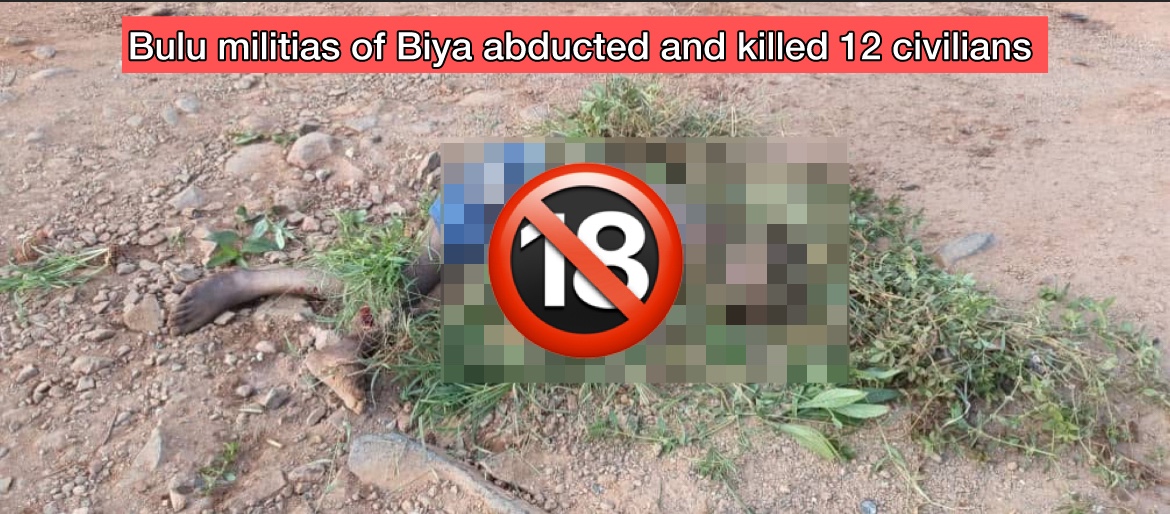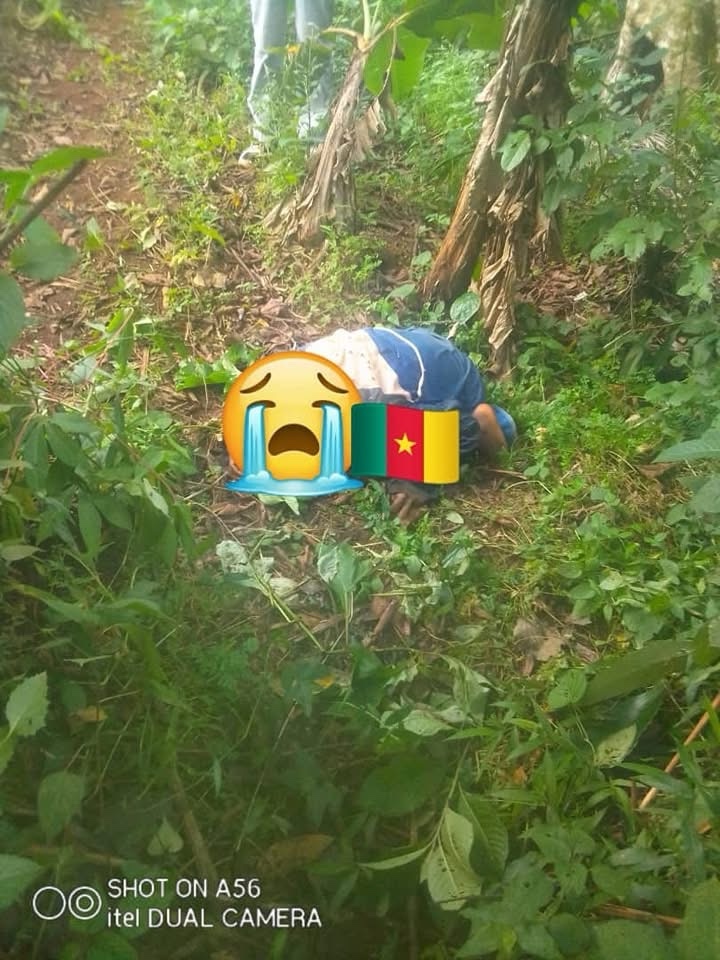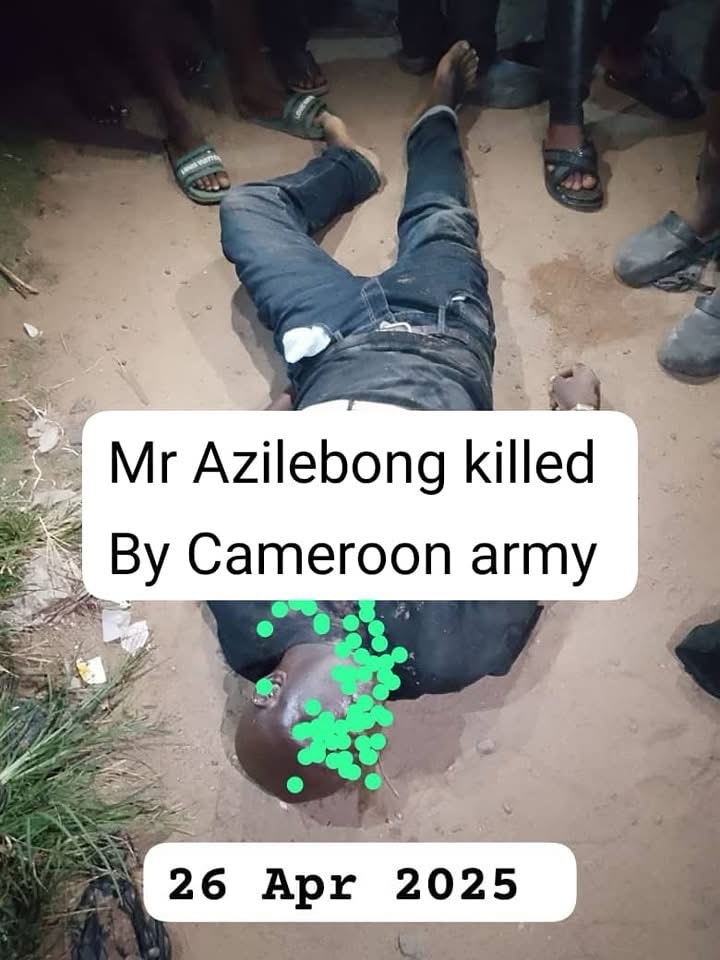THE ABDUCTION, TORTURED AND KILLIND OF 12 UNARMED CIVILIANS
April 6, 2025, Bamenda, Mezam State, Northern Ambazonia, Cameroon Occupation Forces Abducted, Tortured, and killed twelve innocent, energetic, and unarmed civilians. Eyewitnesses recounted that these civilians were taken by force, their hands tied behind their backs, and executed at close range by gunfire. The victims were reportedly not involved in any hostilities and posed no threat to the Occupying Forces.
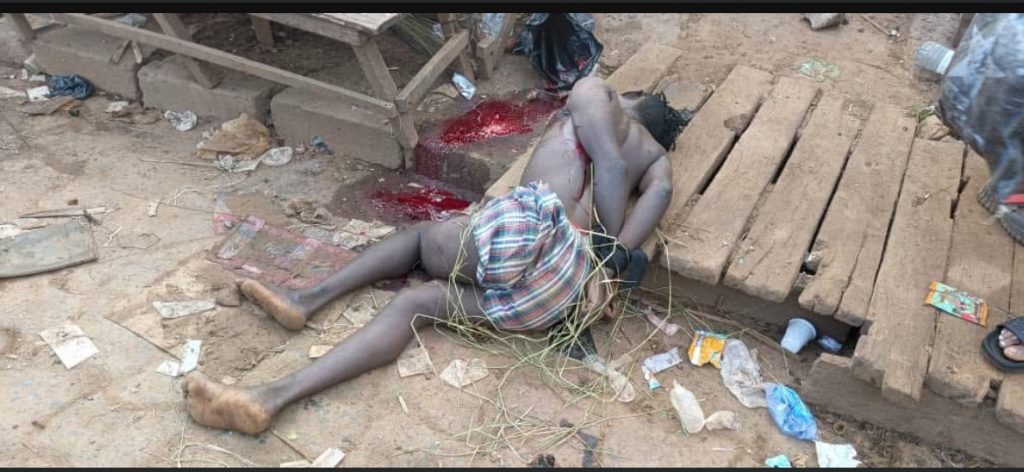

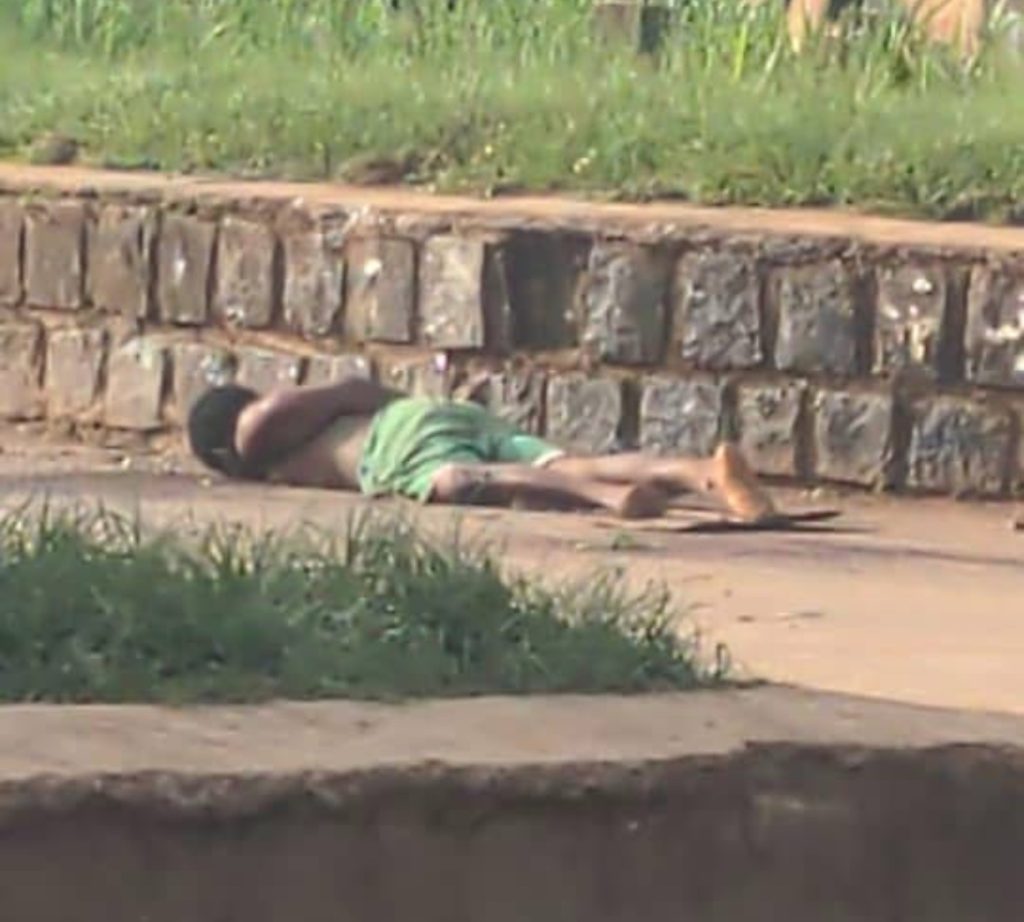
This horrific act reflects a pattern of targeted extrajudicial killings and violence against the civilian population in Ambazonia. The use of excessive force and deliberate killing of non-combatants illustrates the depth of brutality used to suppress dissent. The lack of accountability and ongoing impunity further fuels fear and instability within the affected communities.
The events that took place on April 6, 2025, in Bamenda, Mezam State, Northern Ambazonia, involving the abduction, torture, and execution of twelve unarmed civilians, constitute serious violations of international humanitarian law and qualify as war crimes under multiple legal frameworks.
First and foremost, Article 3 common to the Four Geneva Conventions of 1949, which applies to non-international armed conflicts, explicitly prohibits “violence to life and person, in particular murder of all kinds, mutilation, cruel treatment and torture” of persons not actively participating in hostilities. The civilians who were abducted, tied up, and executed were clearly non-combatants and therefore protected under international law. Their summary execution after being restrained is a direct violation of this foundational humanitarian principle.
Furthermore, under the Rome Statute of the International Criminal Court (ICC), war crimes include “intentionally directing attacks against the civilian population as such or against individual civilians not taking direct part in hostilities” (Article 8(2)(e)(i)). The Rome Statute also criminalizes “violence to life and person, in particular murder of all kinds, mutilation, cruel treatment and torture” in internal conflicts (Article 8(2)(c)(i)). The actions committed by the Cameroon occupation forces—abduction, torture, and execution—fall squarely under these definitions.
In addition, tying the victims’ hands behind their backs before shooting them at close range indicates premeditated extrajudicial executions, which violate both humanitarian law and international human rights law, including the International Covenant on Civil and Political Rights (ICCPR). Article 6 of the ICCPR protects the right to life and prohibits arbitrary deprivation of life.
The United Nations’ Basic Principles on the Use of Force and Firearms by Law Enforcement Officials also condemn such acts. Even in armed conflict, government forces are expected to operate within legal bounds, which strictly prohibit such acts of torture and execution of civilians. The execution of bound individuals constitutes a grave breach of international law and carries individual criminal responsibility for those who ordered or carried out the act.
In conclusion, the incident on April 6, 2025, is a textbook example of a war crime involving unlawful killings, torture, and cruel treatment of civilians. It violates the Geneva Conventions, the Rome Statute, and international human rights treaties. These crimes warrant urgent international investigation and accountability for the perpetrators under international criminal justice mechanisms.
Share this content:
